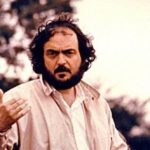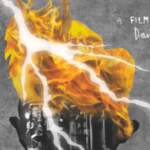 History
History  History
History  Weird Stuff
Weird Stuff 10 Wacky Conspiracy Theories You Will Need to Sit Down For
 Movies and TV
Movies and TV 10 Weird Ways That TV Shows Were Censored
 Our World
Our World 10 Places with Geological Features That Shouldn’t Exist
 Crime
Crime 10 Dark Details of the “Bodies in the Barrels” Murders
 Animals
Animals The Animal Kingdom’s 10 Greatest Dance Moves
 Movies and TV
Movies and TV 10 Box Office Bombs That We Should Have Predicted in 2025
 History
History 10 Extreme Laws That Tried to Engineer Society
 History
History 10 “Modern” Problems with Surprising Historical Analogs
 Health
Health 10 Everyday Activities That Secretly Alter Consciousness
 History
History 10 Dirty Government Secrets Revealed by Declassified Files
 Weird Stuff
Weird Stuff 10 Wacky Conspiracy Theories You Will Need to Sit Down For
 Movies and TV
Movies and TV 10 Weird Ways That TV Shows Were Censored
Who's Behind Listverse?

Jamie Frater
Head Editor
Jamie founded Listverse due to an insatiable desire to share fascinating, obscure, and bizarre facts. He has been a guest speaker on numerous national radio and television stations and is a five time published author.
More About Us Our World
Our World 10 Places with Geological Features That Shouldn’t Exist
 Crime
Crime 10 Dark Details of the “Bodies in the Barrels” Murders
 Animals
Animals The Animal Kingdom’s 10 Greatest Dance Moves
 Movies and TV
Movies and TV 10 Box Office Bombs That We Should Have Predicted in 2025
 History
History 10 Extreme Laws That Tried to Engineer Society
 History
History 10 “Modern” Problems with Surprising Historical Analogs
 Health
Health 10 Everyday Activities That Secretly Alter Consciousness
10 Little-Seen Films by Great Directors
Great directors are often defined in the public mind by two or three films – usually their big hit and their big flop. Spielberg has his Schindler’s List and 1941. Michael Cimino has The Deer Hunter and Heaven’s Gate. Francis Ford Coppola has The Godfather and One From the Heart. But in between there are often several films that have met with moderate success or moderate failure. As a result, they tend to slip through the cracks. This is unfortunate, because almost every great director has a hidden gem here or there; and sometimes they are better than their most famous and influential masterpieces. Here, in no particular order, are ten of the best. If you haven’t seen them yet – and you probably haven’t – head for Netflix; watching them combines the pleasure of a great film with the thrill of discovery.
Sam Peckinpah is now famous as one of the most influential filmmakers of all time. His intense, explicitly violent films both put an end to the heavy censorship that had marked Hollywood history until it began to erode during the 1960s and defined the slow-motion aesthetic still followed by almost all action films today. But in between the blood-soaked films that made him famous are a handful of non-violent and often beautifully rendered little movies that testify to Peckinpah’s skill as a subtle and even delicate artist.
The Ballad of Cable Hogue is the best of them. Sentimental in the best sense, it’s a sweet, ironic, tragic-comic Western that tells the story of a grizzled prospector (Jason Robards) who finds water in the desert and with the help of a dissolute preacher (David Warner) builds a prosperous business until his desire for revenge brings it all to an end. The final, magnificently theatrical scene, in which Warner gives a soliloquy that seems to be about both the main character and Peckinpah himself, is one of the great set pieces of the filmmaker’s career. If you’re not in tears by the end, you haven’t a heart.
Akira Kurosawa is rightly revered as one of the great directors of all time; legendary for his samurai films that gave birth to the spaghetti Western, the modern action movie, and – yes – Star Wars. This picture was his major breakthrough back in the day, but it’s now been completely overshadowed by his samurai epics. This is unfortunate, because it’s simply an extraordinary film. The tale of an alcoholic doctor (Kurosawa regular Takashi Shimura, now best known for his roles in Seven Samurai and the original Godzilla) who presides over a decrepit slum neighborhood in the aftermath of World War II, it contains a titanic performance by Toshiro Mifune – in one of his earliest roles – as a young gangster dying of tuberculosis. It’s tragic, gritty, and touchingly bittersweet all at the same time. If you want to get a sense of the breadth of Kurosawa’s talent, this is the one to see.
Among critics and fans of rock music this film is revered as one of the great concert documentaries of all time, yet it’s all but unknown to the general public. Chronicling the last concert by The Band, one of the most beloved ensembles of the 1960s and ’70s, it’s also a touching look at the intense relationship musicians share with each other and their often destructive life on the road.
At the same time, it’s a sad but moving snapshot of the end of an era when music became a defining cultural touchstone for a generation and yet remained small enough for fans to appreciate the humanity behind the icons they adored. Band member Levon Helm claimed the whole documentary is a lie and in a way he’s right – in the best sense. Scorsese throws out the values of cinéma vérité and creates a carefully crafted and theatrical film. While it probably bears no resemblance to the actual concert, it conjures up a cinematic event of its own through its elegant editing and cinematography. It’s as much a homage to the classic Hollywood musicals as a concert film. When I saw it in a theater, the audience sang along with every lyric and applauded after every number like it was all happening right in front of them.
The last film by Orson Welles and perhaps his most unusual and innovative, this is another documentary that eschews realism and goes for a pure cinematic experience. Born from a BBC documentary on art forgery, Welles uses existing footage – combined with his own – to deconstruct the concepts of art, authorship, and in a cheeky roundabout way, the meaning of life. It contains a striking Welles monologue on the beauty of Chartres cathedral, and the final twenty minutes are a tour de force that combines all of Welles’ talents as an actor, writer, editor, and director to create what amounts to a spectacular magic trick that takes you completely by surprise. If there was ever a film deserving a rediscovery, this is it.
This might be the least-known film on this list, but it’s also one of the best. Director Robert Towne is better known for the script he wrote for Chinatown and the scenes he added uncredited to The Godfather, but along the way he has directed some excellent films of his own. This biopic of champion track runner Steve Prefontaine is probably the best of them. Some of it is generic sports film theatrics, but it also has Donald Sutherland and Billy Crudup in perhaps the best performances of their respective careers. And perhaps unique among sports films, it’s about an athlete whose goal isn’t to win but to make his efforts into a work of art. It’s a fascinating film about a fascinating individual and the man who both trained and fought him every step of the way.
Brian DePalma is in something of a slump of late, but back in the day he directed some great thrillers. This is one of his earliest thrillers and the least known. It’s a strange, grotesque, and at times surrealist tale about a woman who seems to be normal but appears to burst into murderous, psychopathic rages without warning. But she isn’t all she appears to be. In a twist unusual among thrillers, its finale isn’t an action set piece but a psychological journey: DePalma displays his genius for the visual by combining different film stocks and lenses as well as a dissonant soundtrack to enter into the protagonist’s deranged mind and reveal her dark secret.
Woody Allen is best known for his comedies, and while this film is funny, it’s also a melancholy tribute to jazz and bittersweet romance. Set in the 1930s, Sean Penn plays a stunningly talented guitarist who’s also arrogant, self-centered, and doomed to loneliness. Allen clearly adores the world of jazz, and this film beautifully evokes a bygone era when it was a vital musical form. Along the way, real-life greats like Django Rheinhardt make an appearance, and the film ends as a meditation on the price artists often pay to create their greatest work.
Everyone remembers The Exorcist, but almost nobody knows that William Friedkin followed up the classic horror tale with a film that both sank his career and might be his masterpiece. A loose remake of the French thriller The Wages of Fear, the picture follows four fugitives hiding out in a South American village who must transport a load of high explosives through the jungle if they ever want to escape the squalid hell in which they’ve been trapped. At any moment, they may die in a fiery explosion or at the hands of the merciless nature that surrounds them. By the time the film reaches its climax, it’s reached a point of such high tension that you can’t even move while watching it. Released just after Star Wars, Sorcerer’s dark take on the vagaries of fate got lost in a summer dedicated to optimism and sci-fi action, but Friedkin never made a better film, and it deserved and deserves better.
Nicholas Roeg in person might be the picture of the English gentleman, but in his films he’s been a fiendishly subversive and controversial artist. This is probably his most daring and disturbing film. The story of an obsessive sexual relationship between two Americans in Vienna, it contains great performances by Theresa Russell and – of all people – singer Art Garfunkel, who manages to pull off a difficult character who is both a refined academic and a violent sadist. But along for the ride is Harvey Keitel, who steals every scene he’s in as a Viennese policeman who plays a dangerous game of cat-and-mouse with the arrogant Garfunkel, who is hiding a horrifying secret. Meanwhile, Roeg’s slow, relentless camera hovers over it all as the director cuts back and forth between the present and the past; slowly revealing a terrible crime that by the end seems inevitable. It’s one of the most unsparing portrayals of human sexuality and violence ever committed to film. Put off by its explicit and shocking content, audiences stayed away and critics denounced it as sick and perverted. Its reputation has improved over the years, but it still remains largely unknown next to Roeg’s more successful films like Don’t Look Now.
Today, Steven Soderberg is an acclaimed, Oscar-winning director. But after his successful debut with Sex, Lies, and Videotape, which many credit with sparking the American independent film movement, he went through a long period of struggle and obscurity. This strange little thriller was one of the results. It barely got a release back then, but it’s well worth a second look. A homage to both ’60s revenge pictures like Get Carter and Jean-Luc Godard’s subversive experiments like Breathless, it has one of veteran British actor Terence Stamp’s best performances, and a surprisingly superior return to the screen for ’60s icon Peter Fonda. While at first it seems like a simple tale of a man seeking vengeance, it ends up a character study of an aging criminal who comes to realize, for the first time in his life, the price other people have paid for his crimes. Sooner or later, it’ll get the credit it deserves.








